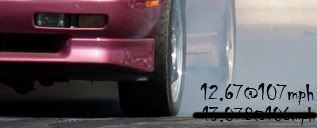For the most part I read many, many posts around the I-Net stating Forged Pistons are the way to go with strong power additions, specifically boost and NOS.
But I learned a little secret about Hypereutectics. Some are heat treated 390 hypereutectic alloy aluminum where others are Non-heat treated 390 hypereutectic alloy aluminum. The difference is how strong the hypers are.
Keith Black Hypereutectic Pistons are the heat treated ones. It seems the difference is crucial if one wants to use hypereutectics in a boosted application. this might explain why some people HATE hypers while others LOVE them.
The heat treated 390 hypereutectic alloy aluminum are actually stronger per weight then forged pistons. When making forged the casting is limited and requires additional work. The heat treated hypers do not need such extensive procedures and can use a permanent mold.
From what I learned, the heat treated 390 hypereutectic pistons are stronger then forged pistons under optimal conditions. Optimal meaning no detonation, no extreme hot spots, ect.
Hypereutectics also use much tighter clearances since they do not expand like forged do. Allowing greater ring seal, less piston-slap and greater longetivity.
Unless the engine is being built for really high boost/drag race application, hypereutectic pistons are the best for street performance boost. So as long as the tune is good.
In conclusion, I swapped my set of forged for a set of Heat treated 390 hypereutectic alloy aluminum pistons before I installed them. I will eventually put them under 15-16 psi of boost. I will let you all know how that goes. If I trash the block, oh well it's only a 3100. It would give me an excuse to get a 3400 and bore it out and put in reinforced crank with double timing chain and forged rods.
I would love to hear what your opinions are. I like to get into the serious science of performance engines. I don't want to just build the engine, I like to revolutionize.
But I learned a little secret about Hypereutectics. Some are heat treated 390 hypereutectic alloy aluminum where others are Non-heat treated 390 hypereutectic alloy aluminum. The difference is how strong the hypers are.
Keith Black Hypereutectic Pistons are the heat treated ones. It seems the difference is crucial if one wants to use hypereutectics in a boosted application. this might explain why some people HATE hypers while others LOVE them.
The heat treated 390 hypereutectic alloy aluminum are actually stronger per weight then forged pistons. When making forged the casting is limited and requires additional work. The heat treated hypers do not need such extensive procedures and can use a permanent mold.
From what I learned, the heat treated 390 hypereutectic pistons are stronger then forged pistons under optimal conditions. Optimal meaning no detonation, no extreme hot spots, ect.
Hypereutectics also use much tighter clearances since they do not expand like forged do. Allowing greater ring seal, less piston-slap and greater longetivity.
Unless the engine is being built for really high boost/drag race application, hypereutectic pistons are the best for street performance boost. So as long as the tune is good.
In conclusion, I swapped my set of forged for a set of Heat treated 390 hypereutectic alloy aluminum pistons before I installed them. I will eventually put them under 15-16 psi of boost. I will let you all know how that goes. If I trash the block, oh well it's only a 3100. It would give me an excuse to get a 3400 and bore it out and put in reinforced crank with double timing chain and forged rods.
I would love to hear what your opinions are. I like to get into the serious science of performance engines. I don't want to just build the engine, I like to revolutionize.





Comment